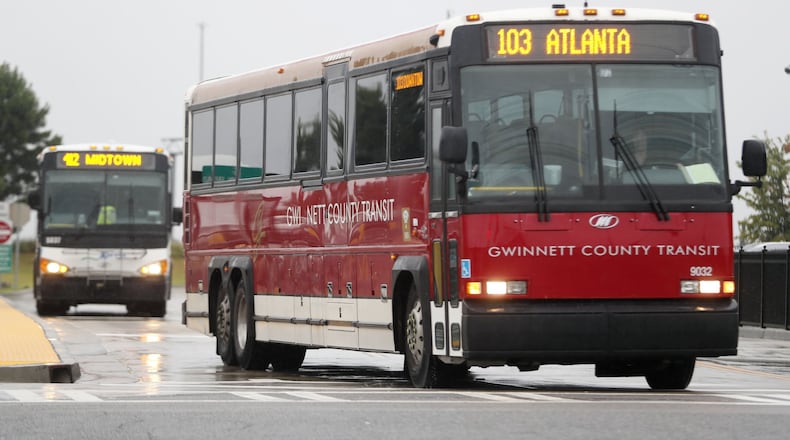The Gwinnett Chamber of Commerce has formally endorsed the Nov. 3 transit referendum that would bring heavy rail and extensive bus service to Gwinnett County.
The chamber also supported the failed March 2019 transit referendum. Gwinnett Chamber President and CEO Nick Masino was part of pro-transit group Go Gwinnett, which campaigned in favor of the March referendum.
MORE | Gwinnett voters will have another shot at transit expansion this fall
The chamber’s argument then and now is that an expanded transit system, including heavy rail, will help attract businesses and residents to Gwinnett and encourage those already there to stay. Accessibility to mass transit is considered an important factor for many companies when searching for a site to expand or relocate.
“Concerning Gwinnett’s economic potential, the development of transportation alternatives is essential for retaining and attracting new and expanded businesses and high-paying jobs,” Masino said in a Chamber release. “The development of a robust transit system gives our county regional connectivity, greater access to top workforce talent, and improved mobility throughout the county where our residents have the enhanced ability to live, learn, work, and play.”
The county’s existing transit system consists entirely of buses, with routes concentrated in the southern and eastern parts of Gwinnett. While the coronavirus pandemic has eased traffic across the metro area, Gwinnett’s typical rush hour congestion is notoriously severe.
The transit plan up for a vote on Nov. 3 would add more bus routes and bus rapid transit, which is similar to light rail but cheaper to install. Bus rapid transit routes usually have dedicated lanes to reduce the impact of traffic fluctuation on travel times. MARTA would only operate the single heavy rail stop; Gwinnett County would operate the rest of the system, and would have the freedom to choose an operating partner if they wish.
Voters will decide whether the county can institute a 1% sales tax for the next 30 years to fund the transit plan on the general election ballot. Early voting begins Oct. 12.
About the Author
The Latest
Featured


